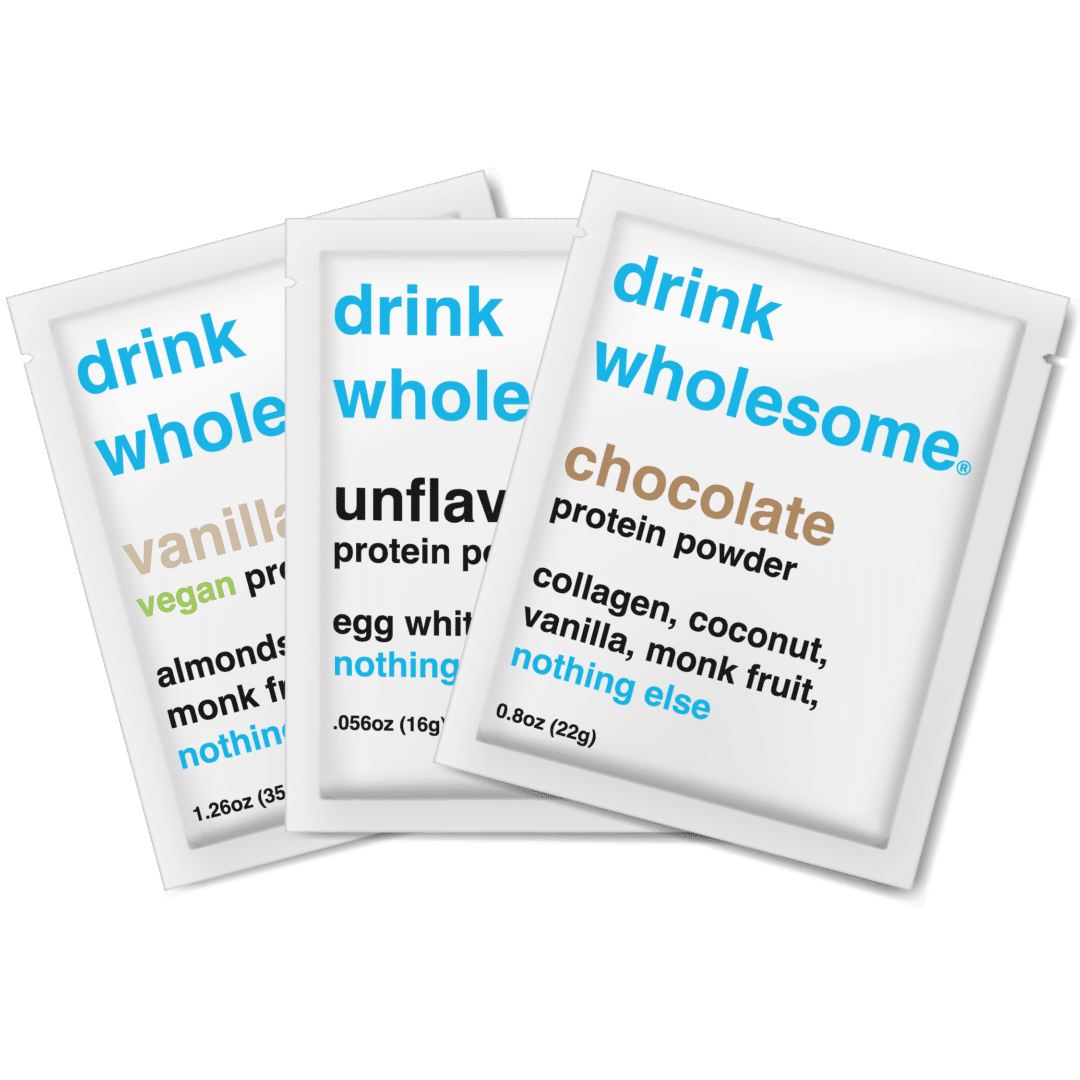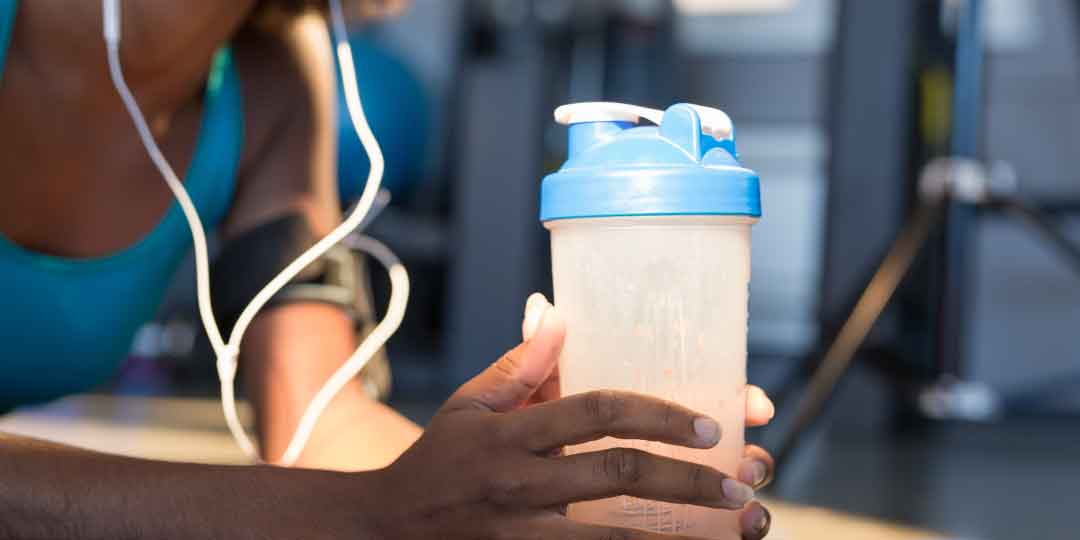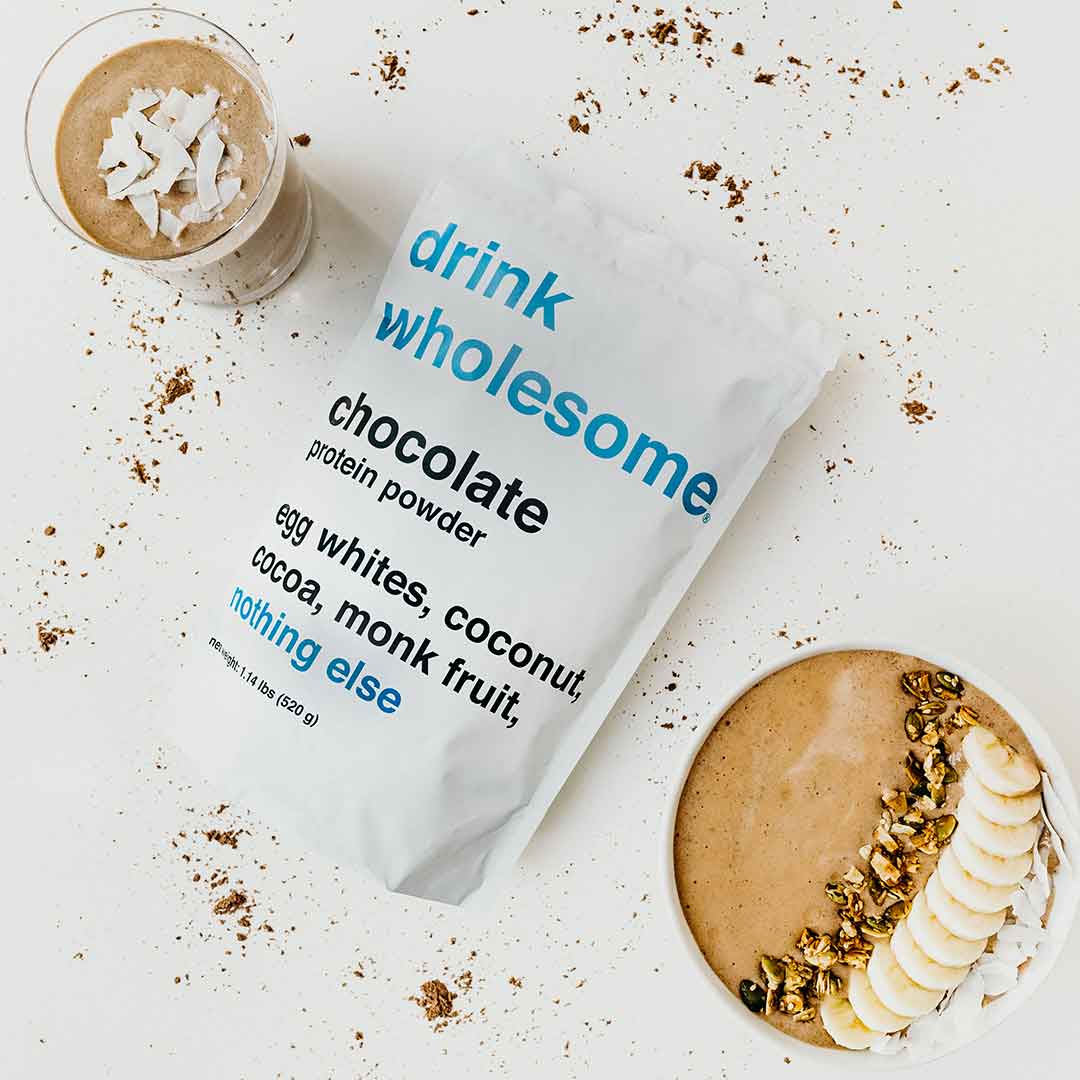How to prevent gas from protein powder.
Basically, if you are looking for a protein powder that doesn’t make you gassy, look for a short list of simple ingredients. The fewer ingredients, and the more the ingredients look like real food, the easier your protein powder will be to digest. As you just learned, easy to digest foods spend less time feeding the hungry bacteria in your gut, and produce less gas.
Believe it or not, gas has little to nothing to do with protein. Unless you have a specific allergy or food sensitivity, the type or amount of protein in your protein powder should not affect your digestion. The ingredients to avoid are actually additives like emulsifiers, stabilizers, thickeners, artificial sweeteners, and flavors, as they look nothing like real food.
Here is a list of the most common food additives in protein powder:
acacia gum, acesulfame potassium, artificial flavors, aspartame, carrageenan, cellulose gum, dextrin, dextrose, erythritol, gellan gum, guar gum, gum arabic, inulin, locust bean gum, “natural” flavors, maltodextrin, rice syrup solids, soy lecithin, silica, sucralose, sunflower lecithin, xanthan gum, xylitol
Dairy-based proteins like whey and casein should also be avoided, especially if you are lactose intolerant. Lactose intolerance, which affects over one third of adults, is the inability to fully digest lactose, the sugar in dairy. Since whey and casein protein are byproducts of cheese and yogurt production, they contain lactose, which can end up feeding your gut bacteria. Gut bacteria release gas as they eat, causing a number of gastrointestinal (GI) side effects including bloating, constipation, diarrhea, flatulence, and stomach pain.
One of the reasons why our protein powder will not make you gassy is that we do not use food additives or dairy-based proteins.










